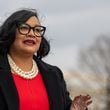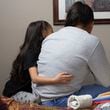Fifteen years ago, press releases from top colleges would brag incoming freshmen had taken an average of four or five AP classes. That's a piddling tally now. Last week, Georgia Tech announced the average student admitted this year took 10 college-level courses while in high school.
Elite colleges contend five college-level courses are enough to be considered for admission. Yet, these same colleges urge high school students to take "the most challenging courses available at your high school." If students follow that recommendation, they could easily end up with 10 AP classes on their transcript.
When my oldest daughter was a toddler, I hired college students to watch her in the afternoon. One of my sitters graduated a powerhouse suburban Chicago high school. The young woman arrived at Agnes Scott College with 11 AP classes, mostly in math and science. I remember being amazed as enrolling in three or four AP classes was considered ambitious in Georgia. Now, I often meet local teens packing their schedules with AP classes.
Is it a good thing? Some private high schools are rethinking how many AP classes they allow their students to carry because of the resulting stress and inability to do anything else but study. There was a great reader debate in the Washington Post on AP overdrive. I found this reader comment interesting as it reflects the contradictory messages:
This is getting ridiculous. I teach AP art history and most of my students are "AP kids," taking several AP classes at once. My first year teaching there was this one very bright girl who started nodding off about every day toward the end of third quarter (just before AP testing started). I took her out in the hall to ask what was up. She told me that she was taking all kinds of medications for anxiety, depression, sleeplessness. She said she was taking seven AP courses and hoped to get into Penn State. I told her that AP classes are supposed to be college-level equivalents and that if she were a freshman at any university, she'd need administrative approval to take more than five courses. We let our kids drive themselves into the ground in competition with APs, and other things. End of story: she got into Penn State. So I must be the fool.
Allyson Gevertz was a school psychologist in Gwinnett County Public Schools before becoming the parent of children in DeKalb County Public Schools. Now an education advocate, she says crusading for all of DeKalb's students is often easier than parenting her own. In this compelling column, she shares her experience with her child's first AP class.
By Allyson Gevertz
For years I heard all the reasons my child had to take AP classes: she will not get into good colleges without them, she needs the college credit, she will not be challenged by a general level class filled with low achievers.
This reasoning never quite squared with my core beliefs: teaching to the test is wrong, making academic decisions for a high school student can undermine their autonomy, fostering creative thinking leads to resiliency. I listened to parents boasting of their children's 12-AP-class transcripts. I overheard students telling stories of textbook note-taking at 2:00 in the morning. I read studies showing that kids are cracking under pressure. My brain told me to be skeptical of the AP hype, but deep inside I figured that my student would take all the APs because that's what's done in our high-achieving culture.
This year, my daughter had her first chance to take an AP class. She signed up for it, met the teacher on registration day, and processed the "Final date to drop AP" deadline on the chalkboard. School started and the class delved into the subject matter with depth and speed. My daughter almost immediately told me that she didn't like it. She found the material uninspiring, she didn't like regurgitating what she memorized from the book, and she craved the opportunity to connect what she was learning to today's reality.
I scheduled a meeting with the instructor, thinking the teacher could reassure my daughter that her needs could be met in the AP class. When we met, the teacher actually validated my daughter's concerns. The focus of the AP class is passing the AP test to get the college credit. Because there is so much material to cover, class discussion is often cut short. AP students have the benefit of learning to digest large amounts of information, similar to a real college class; but students in the regular class have the benefit of time, regularly discussing the link between the material and the students' own lives.
After a few more days of class, my daughter opted to drop AP. I let her do it. I told myself that I was not a helicopter parent. It was not my decision. I was not the one doing the work. However, deep down, I felt that my daughter was giving up a piece of her future. I thought that the trajectory of her life was shifting and that certain goals would no longer be attainable for her. Valedictorian, Ivy League, merit scholarships would not be options for her. I thought that she would regret her decision.
It's nearing the end of the school year and I look back with amusement at my internal turmoil. I did the right thing by letting her make her own choice, but my concerns were misplaced. The subject she found uninspiring at the AP level is now her favorite. Instead of taking notes from a poorly-written textbook, she wrote a children's book, created interactive games, and planned a character-driven tea party in her regular class. Fiery class discussions have led to a deep understanding of current events and pressing world issues. The teacher has sparked my daughter's love of learning, and that, ultimately, is what school should be about.
I'm not suggesting every non-AP class will have an amazing teacher who brings the subject to life. I am, however, suggesting that AP classes may keep students in a box that discourages creativity in favor of a "college experience." Perhaps all 15-year-olds don't need that experience. Maybe the work of digesting thousands of pages of dry text is better left for 19-year-olds.
My daughter’s choice has given her breathing room to enjoy high school, maintain outside-of-school activities that have nothing to do with academics, read books for pleasure, and get a good night's sleep. This may not earn her college credit or even a seat in a top-tier university, but I hope it will give her a dose of critical thinking, a sense of work/life balance, and the inspiration to solve real-world problems in her lifetime. I've been telling myself that my daughter would be okay, but thanks to our AP experience, I'm finally believing it.







